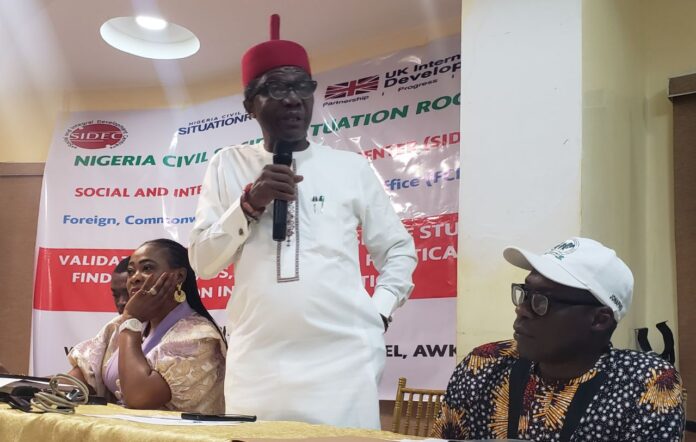The Social and Integral Development Centre (SIDEC) has presented the findings of its baseline study on the inclusiveness of Persons with Disabilities (PWDs) and women’s political aspiration in elective positions.
The study, carried out as part of Project IMPACT, is being implemented by the Nigeria Civil Society Situation Room in partnership with SIDEC, with funding support from the UK Foreign, Commonwealth & Development Office (FCDO).
Speaking during a validation meeting held in Awka on Friday, October 3, 2025, the Executive Director of SIDEC, Mrs. Ugochi Ehiahuruike, said the project seeks to promote inclusive participation of women, youths, and persons with disabilities in governance while combating disinformation.
Ehiahuruike lamented the poor representation of women in politics, noting that in Anambra State, only two out of 30 lawmakers in the State Assembly are women, while in Imo State there are none out of 27.
“Nationally, women hold just 3.7 percent of Senate seats and 3.9 percent in the House of Representatives.”
She highlighted the promise of the Special Seats Bill—which proposes constitutional amendments to reserve legislative seats for women—as a step toward gender equity.
However, she observed that awareness and grassroots support for the bill remain low, especially among the women it seeks to empower.
The SIDEC Executive Director also expressed concern about voter apathy, recalling that Anambra recorded only 10 percent voter turnout in its 2021 governorship election.
According to her, youths and marginalized groups often view elections as corrupt, violent, or irrelevant, while disinformation further erodes public trust and discourages participation.
“Through this validation process, we are presenting key findings and gathering feedback to strengthen the accuracy and relevance of our reports.
“This will help build consensus on baseline indicators for tracking project progress, foster shared ownership, and boost credibility among stakeholders,” Ehiahuruike explained.
In his goodwill message, Chairman of the Joint National Association of Persons with Disabilities (JONAPWD), Anambra State Chapter, Comrade Ugochukwu Okeke, described the validation exercise as both timely and strategic.
“It speaks to the urgent need to deepen our democracy by ensuring that no one is left behind in the political process.
“For too long, women and PWDs have been underrepresented in leadership and decision-making spaces despite their resilience and contributions to nation-building,” Okeke said.
He emphasized that the baseline study should serve not only as research evidence but also as a mirror reflecting challenges and solutions, providing guidance for advocacy and inclusive policymaking.
Okeke called for dismantling structural, institutional, and attitudinal barriers to participation while amplifying inclusive practices.
Also lending their voices, Anambra State Commissioner for Information, Dr. Law Mefor; ASTUC Youth Leader, Comrade Ken Okoli; Resident Electoral Commissioner of INEC in Anambra, Dr. Queen Elizabeth Agwu; Prof. Jaja Nwanegbo; and former Vice President of Ohanaeze Ndigbo, Ichie Damian Okeke-Ogene, all commended SIDEC and encouraged women to build confidence in their capacity to lead.
According to the findings presented, factors fueling voter apathy in Anambra include insecurity, distrust in INEC, patriarchal exclusion of women, neglect of PWDs, poverty, financial barriers, and the spread of fake news.
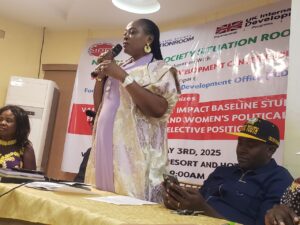
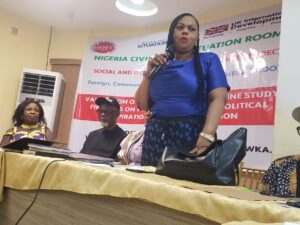
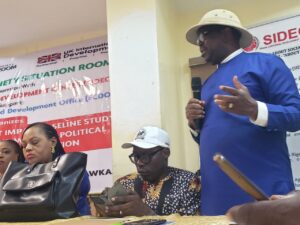
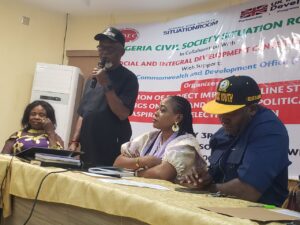
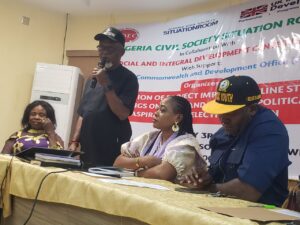
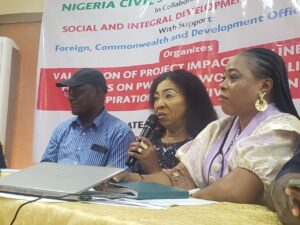
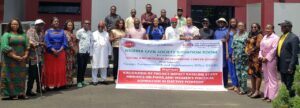


The study recommended measures such as strengthening election security, rebuilding trust in INEC through transparency, inclusive voter education, passing and implementing the Special Seats Bill, supporting women, youths, and PWDs with financial and capacity-building opportunities, and combating fake news through fact-checking and legislation.





